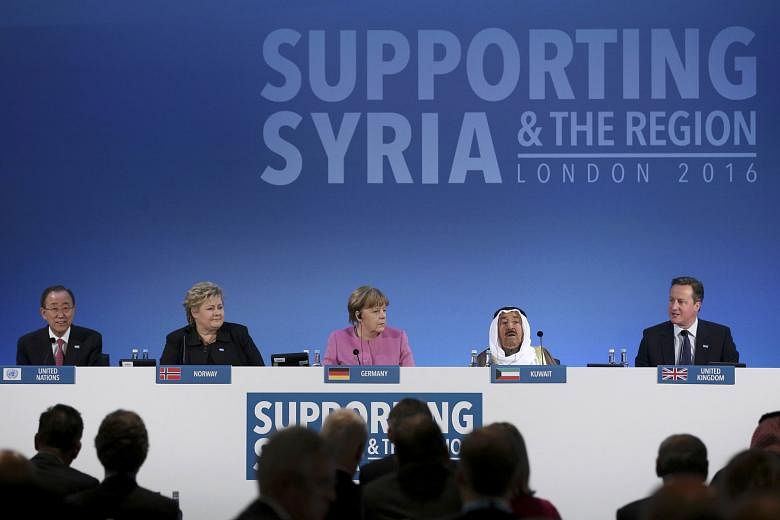GENEVA • The United Nations (UN) on Wednesday temporarily suspended fledgling talks aimed at ending the war in Syria and called on countries fuelling the conflict to do more to yield results, as Syrian government forces sharply escalated an offensive on a strategic rebel-held city.
"I have concluded, frankly, that after the first week of preparatory talks, there is more work to be done, not only by us, but also by the stakeholders," UN mediator Staffan de Mistura said after meeting the opposition delegation on Wednesday evening at a Geneva hotel that serves as its headquarters.
Mr de Mistura took pains to add that the pause did not mean "the end or the failure of the talks".
In a statement later in the evening, he suggested that the government's failure to alleviate the humanitarian crisis in Syria by allowing food and medicine into rebel-held towns had prevented any serious discussions. "I'm not prepared to have talks for the sake of talks," he said, adding that they would resume no later than Feb 25.
The pause loomed over a donor conference that started yesterday in London, where the world's rich countries discussed raising money to feed and house Syrians scattered around the world.
United Nations agencies are appealing for US$7.73 billion (S$10.8 billion) to cope with the disaster this year, plus US$1.2 billion to fund national response plans by countries in the region. Last year, donors gave barely half of what was needed; rations were cut for Syrians living in neighbouring Jordan, Lebanon and Turkey; and hundreds of thousands of Syrians fled across the Mediterranean to Europe.
Conference co-hosts Britain, Norway and Germany were the first to announce their pledges. Britain promised an extra £1.2 billion (S$2.47 billion) by 2020, raising its total commitment to £2.3 billion. Norway pledged US$1.17 billion over the next four years, while Germany said it would give €2.3 billion (S$3.6 billion) by 2018. The US has also announced a US$890 million contribution.
The recess in the peace talks came as Russian air strikes helped Syrian forces make major advances in the conflict, and made them far less likely, diplomats say, to enter into serious negotiations.
At the same time, the rebels and their backers in Saudi Arabia and Turkey are hard-pressed to negotiate a political deal, or even a truce, without a guarantee that Syrian President Bashar al-Assad, will be ousted.
French Foreign Minister Laurent Fabius accused Syria and Russia of "torpedoing the peace efforts" by launching an offensive near Aleppo, and said world powers would hold "in-depth consultations" on their actions at the donors' conference.
In a statement issued on Wednesday from London ahead of the donor conference, US Secretary of State John Kerry called on the Assad government to cease bombing rebel forces. "The continued assault by Syrian regime forces - enabled by Russian air strikes - against opposition-held areas... has clearly signalled the intention to seek a military solution rather than enable a political one," he said.
The talks in Geneva had barely begun, with Mr de Mistura meeting a government delegation last Friday and continuing meetings with the main opposition delegation on Monday and Wednesday.
The gulf between the two sides remains so wide that they were never meant to meet face to face. There was discord over who would represent the opposition and what would be discussed, and by the time both parties arrived in Geneva, the goals had been ratcheted down.
The opposition delegation insisted that no political negotiations could begin until sieges had been lifted on rebel-held towns, air strikes halted and political prisoners released. Yet the suspension of the talks made it clear that even those modest goals were not to be met any time soon.
NEW YORK TIMES, AGENCE FRANCE-PRESSE, REUTERS

